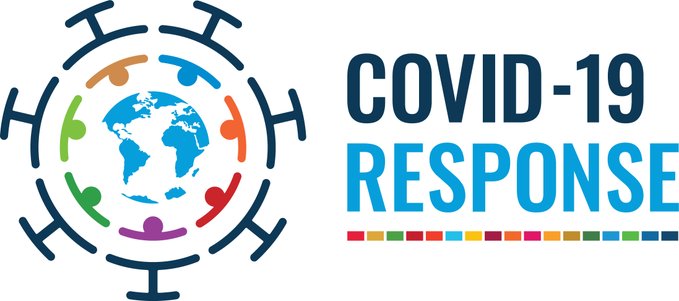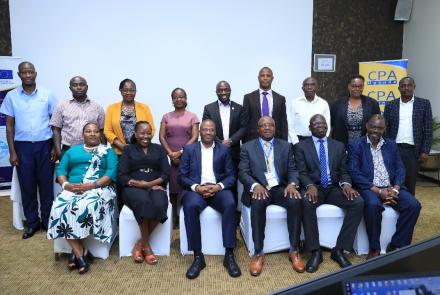ASSESSING ORGANISATIONAL RESPONSES TO COVID-19
ICPAU's survey reveals sentiments among Certified Public Accountants about the impact of COVID-19 (coronavirus), and how their organizations plan to respond. The survey findings indicate that organizations are concerned over the impact of COVID-19 on their revenues and cash flows. Organizations have had to review their operating and business models in order to stay afloat in an uncertain business environment.
Key findings
Initial strategic responses for organizations are focused on reviewing business continuity plans and assessing effectiveness of risk management strategies that are in place. Over 48% of the organizations reviewed and/or implemented business continuity and risk management plans in view of COVID-19, about 12% set up crisis management teams and about 10% implemented digital technology and tools as a response to COVID-19.
Cash flow concerns and uncertainty on the length of economic downturn run very high for most management teams. Members indicated that the top three most pressing concerns for their organizations’ top management teams were; cash flow concerns (63%), uncertainty around the length of economic downturn (62%) and issues of government’s COVID-19 related policies/ legislation (44%). About 2 in 10 respondents said their organizations had drawn on existing lines of credit or tapped another source of liquidity because of the COVID-19 outbreak, nearly 6 in 10 had not, while 2 in 10 indicated that they were thinking about it.
Organizations’ revenue projections expected to drop. While 10% of the respondents were not sure by how much their revenue was expected to drop from what was initially projected for the first three months of the year, all the respondents agreed that there would certainly be a drop in revenue projections for the first three months of the year. About 17% thought it would drop by 50% or more and only about 13% believed their revenues would only drop by between 1-10% from projected.
Short-term steps organizations are taking to survive the revenue and profit impacts. Members shared some of the short-term steps taken by their organizations to survive the revenue and profit impacts resulting from the COVID-19 outbreak including scaling back or delaying investment (about 50% respondents) and reviewing or re-negotiating existing contracts(about 40%).
Managing cash flow and cash balances for the next 6 months. To manage their cash flow and cash balances for the next 6 months, about 66% of the respondents said they were halting all or some discretionary spending and nearly 40% of the respondents said that they were stretching out payables.
Employees and customers rank among the top key stakeholders for organizations. Organizations indicated the need to balance the needs of their various stakeholder groups as they make business decisions related to COVID-19. Majority of respondents said their organizations had considered leave management options for their employees (64%) and about 42% said they were suspending or terminating recruitment processes. Some of the employee-supportive actions taken by organizations in response to COVID-19 included: remote work arrangements for employees (61%), 14% had restricted travel or eliminated all travel, while another 12% developed a communication strategy for employees. Organizations developed communication strategies and other support systems for their customers and other stakeholders (68%) to help them navigate the crisis.
Organizations lack sufficient resources to adequately respond to COVID-19. Among the survey respondents, only3 in 10 respondents said their organizations had sufficient resources to respond to COVID-19, about 4 in 10 said they did not have sufficient resources to respond to COVID-19, while about 1 in 10 were ambivalent or unsure about their organization’s resource sufficiency.
Way forward
-
Organizations must implement/ review strategy to;
-
Integrate emergency planning and funding into their plans, and put in place contingency funds to manage such unexpected occurrences;
-
Prioritize operations and only attend to critical areas that must be attended to in the current circumstances;
-
Include post COVID-19 recovery initiatives in work plans and budgets; and
-
Continually focus on expense control and/or reduction.
-
Strengthen social dialogue on conditions of work and employment1. The ILO recommends social dialogue on working conditions and employment retention measures (including through collective bargaining) to ensure protection of workers and support business continuity. More specifically, the social partners (government, workers and employers) have a key role to play in designing solutions tailored to the specific needs of an industry, sector or enterprise. Negotiated agreements can strike an important balance during times of crisis.
-
Adapt and adjust business models that enable use of online and digital solutions to carry out operations. Such technologies should be able to support remote working, provide online support to clients, and enable carrying out of other business transactions.
-
Design a communication strategy and implement support systems for stakeholders – providing news updates through social media platforms and email.
-
Leverage information that is available both locally and globally to be able to;
-
monitor national & global changes;
-
analyze initiatives by Government and World Organizations on how they impact business;
-
carry out research on business specific recovery practices; and
-
Communicate & engage with stakeholders - stay in touch and find out how different stakeholder groups are doing – employees, suppliers, customers and creditors.
-
Manage cash flow concerns in the short-term, by;
-
re-negotiating existing contracts with debtors and make cash inflows certain;
-
considering business diversification;
-
looking at short-term investments to generate quick revenue;
-
borrowing against existing credit lines to bolster cash at hand; and
-
easing business with existing clients.
About the ICPAU Covid-19 Survey
ICPAU conducted a survey of its members to explore organizational responses to the COVID-19 global pandemic. The objective was to allow members share their experiences on the actions taken by their organizations in response to COVID-19. The survey was administered electronically to members by email and on social media from 10–24 April 2020. A total of 154 responses were received.





